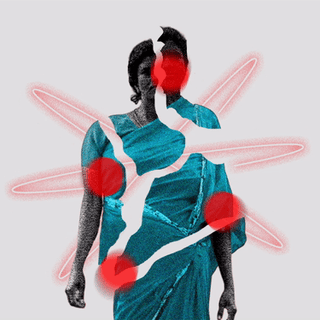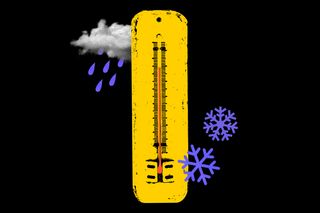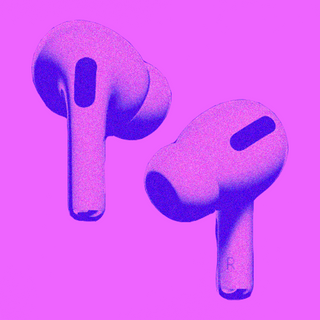
Can Changes in Weather Really Make People Fall Sick?
“The change of temperature doesn’t make you sick but changes in weather conditions can predispose you to getting sick.”

Every year, we come across people — friends, colleagues, family members — complaining about changes in the weather causing them to fall sick. In fact, many of us have probably fallen sick ourselves around the time of the year when temperatures drop due to changing seasons. But the question is: are temperature drops at all the culprit, here, or are other forces at play?
“The change of temperature doesn’t make you sick, but changes in weather conditions can predispose you to getting sick,” explains Dr. Neha Vyas, a family medicine expert. In other words, it’s not the coldness per se that causes us to struggle with the common cold — at least, not directly. Elaborating further, Dr. Vyas notes, “Winter means colder, drier air that dries out the mucus membranes and that can allow viruses into your body quicker. Cracks in the mucus membranes can allow those viruses to settle and access your body.”
The coldness then does play a part here, but indirectly so — and, in more ways than one. As Dr. Vyas adds, “When the air gets colder, it weakens our immune system, making us more susceptible to infections.”
Jamie Eske, who studies public health and biostatistics, elucidates the process of cold weather impacting our immune response adversely. Writing in Medical News Today, Eske posits that dips in people’s vitamin D levels due to lower sun exposure during cold weather might contribute to a weakened immune system. This is because vitamin D performs the function of boosting our immune cells’ production of proteins to fight and fend off microbes.
Since it’s cold outside in the winter, people are often cooped up indoors. Besides keeping them from the sun, covered, enclosed spaces also bring people in close contact with one another — exposing everyone to the germs that just a few individuals might be carrying.
Related on The Swaddle:
Why Do Some People Feel Hotter or Colder Than Others?
Recommending safer ways to congregate during the winter months, Dr. Vikash Modi, a family medicine physician, says, “When large groups gather together, we all need to be a little more careful about hand hygiene and covering our mouths and noses with coughing and sneezing.”
Covering one’s mouth and nose while coughing and sneezing is a good practice generally, of course. But during winter months, one might falter when it comes to the hand hygiene aspect of Dr. Modi’s advice — especially at a point where one is already freezing, they might be less inclined to subject their extremities to even greater cold. And hot water isn’t always available — especially readily — to everyone. This suggests that cold-induced laxity in personal hygiene, rather than the cold itself, might make us more vulnerable to infections in the winter.
Further, Eske points out that when we’re breathing in cold air, the blood vessels in the upper respiratory tract attempt to conserve heat by constricting themselves. Unfortunately, however, in doing so, they obstruct the white blood cells from making their way to the mucous membrane to fight infections.
Cold weather might also provide viruses with the ideal temperature they need to thrive. “Data indicates that viruses survive and proliferate more effectively at colder temperatures, allowing them to spread and infect greater numbers of people in colder temperatures,” notes Dr. Robert Glatter, an emergency physician.
But that’s not all. Our strategies to cope with harsh temperatures — like turning on the heaters to protect ourselves from the cold — can, rather ironically, elevate our chances of falling sick. “Heating and air conditioning can dehumidify air and recirculate the dust on your radiators. This can set off allergies, and nasal and sinus symptoms, and can cause sore throats,” states Dr. Aimee Brame, a consultant physician. “In your attempt to stay warm or cool down, using these systems inadvertently helps to circulate germs that cause respiratory infections.”
Related on The Swaddle:
Having a Cold Might Temporarily Protect Against Covid19, New Study Finds
However, it’s not just the onset of winter that triggers itchy throats and runny noses. The loveliest of seasons — spring — too, can usher upper respiratory symptoms in people, causing them to attribute the same, yet again, to “seasonal changes.” But how can gradually warming weather cause a cold? Turns out, it can.
Dr. Modi offers an explanation: “Changes in weather are, basically, challenges to our immune system and to our musculoskeletal system. Our bodies get used to a certain climate, and when those things change suddenly, our body has to try to adapt. Unfortunately, sometimes our bodies have a difficult time adjusting, which can trigger an illness.”
And then, there’s pollen. During warm and windy weather, pollen count in the air is believed to be higher than in cool, rainy weather. Cold-like symptoms that people develop as new seasons arrive — be it spring, summer, or autumn — may actually be pollen-related allergies.
Dr. Vyas has a piece of advice to deal with seasonal colds — interestingly, it happens to be oddly reminiscent of the global health crisis we just underwent. But, perhaps, for that same reason, it won’t just protect us from the common cold, but from Covid19 too. “Wearing a mask indoors, especially when you’re around a group of people whose immunity or vaccination statuses are unknown, is a great idea,” Dr. Vyas advises.
Oh, and stay hydrated.
Devrupa Rakshit is an Associate Editor at The Swaddle. She is a lawyer by education, a poet by accident, a painter by shaukh, and autistic by birth. You can find her on Instagram @devruparakshit.
Related


Leprosy Bacteria Could Help Regenerate the Liver in Armadillos: Study
